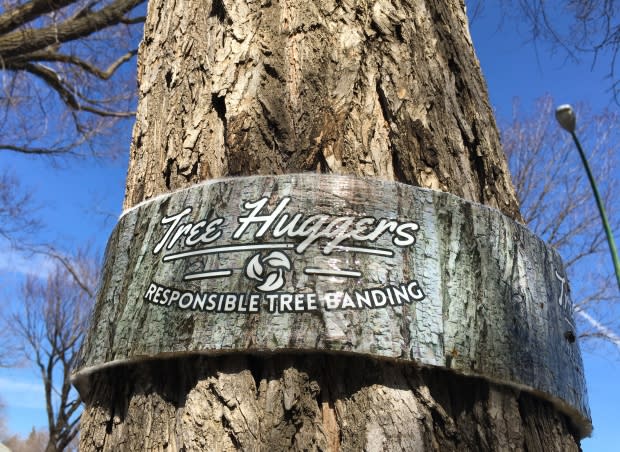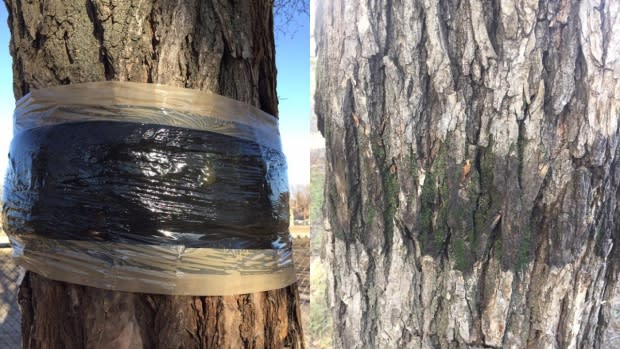Regina entrepreneurs reinvent decades-old tree banding system
A duo from Saskatchewan is improving the system used to protect trees from harmful insects.
Joshua Bresciani and Brendan Thibault are behind the Tree Huggers' responsible banding system.
In Regina, homeowners have to band the trees on and in front of their property themselves.
Thibault, who lives in the Cathedral neighbourhood, said when he started looking into how tree banding was done, he was sure there had to be a better way.
Traditional tree bands consist of home insulation, a garbage bag, and axle grease fastened with duct tape and staples.
They have to be removed twice a year, usually in spring and fall.
"The home insulation that they're using holds moisture, so when it rains, moisture is held and causes bark rot and can really damage the tree," Bresciani said. "You see it all over the city with big, dark rings around our beautiful trees."
"Nothing is environmentally friendly or recycled or biodegradable."

Tree banding is meant to protect trees from bugs like canker worms, gypsy moths and tent caterpillars. These pests climb trees and lays eggs within them. When the eggs hatch, the pests will eat the tree's leaves, which can cause serious damage.
The Tree Huggers bands still stop the bugs, but they are not harmful to the trees. All the materials used are recyclable or biodegradable. Thibault said their bands are also more effective and esthetically pleasing.
"Our bands are essentially camouflaged to the actual tree species," he said. "For the elm trees, we have elm bark. So you really don't even notice the bands on the trees."
Expanding beyond Saskatchewan
Bresciani and Thibault have spent three and a half years testing the product. They say the banding fills the bark's grooves perfectly, and the adhesive is non-toxic, clear and all natural.
Their bands cost $5 per foot, which includes installation and taxes.

Trees Winnipeg, a non-profit aiming to save elm trees, has worked with the company, as have researchers at the University of Saskatchewan.
Bresciani said product feedback has been good and he sees the bands going much further than just Regina. He said it can be used on fruit trees and for other seasonal applications.
"This is far beyond Saskatchewan. There's infestations all over North America much like this and all over the globe, really," Bresciani said.

